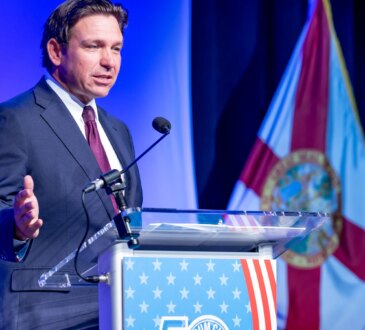County officials are turning to federal court over regulations of delinquent property taxes that they say puts them in an impossible bind.
Two Illinois counties surrounding Chicago, Lake and DuPage counties, have filed federal lawsuits against the state over a property tax sale process they say leaves them stuck enforcing laws that are “unconstitutional by design,” Crain’s reported.
Officials in the counties are asking a judge to declare that the Illinois property tax code, which dates back to the 1930s, forces them to run tax delinquency sales that violate property owners’ rights under the Fifth Amendment.
Their complaint, filed in U.S. District Court earlier this month, argues that county officials are “compelled” to seize property in a way the U.S. Supreme Court has ruled unlawful.
That Supreme Court ruling came in the 2023 case Tyler v. Hennepin County, which was derived from a tax sale in Minnesota’s Twin Cities. The court held that government entities cannot take more from property owners than what’s owed in back taxes. Doing so, the court said, constitutes an illegal taking of private property.
Nine states have since reformed their tax sale laws. Illinois, despite pending legislation, has not. In the meantime, Lake and DuPage officials say they’re caught between violating residents’ rights or exposing themselves to lawsuits from school districts and municipalities for failing to collect late taxes. The suits name Illinois Attorney General Kwame Raoul as defendant.
The counties are asking the court to absolve them of liability and clarify that any excess value taken from property sales — that is, homeowner equity — must be returned by the tax buyers who profit from those sales, not the counties that facilitate them.
The complaint is one of two nearly identical suits filed by a coalition of seven counties, including Will, Kane, Peoria, Carroll and Boone. Will and Kane counties also border Cook County, home to Chicago, as do Lake and DuPage.
A bill in the Illinois General Assembly, HB3146, seeks to resolve the issue by requiring any surplus equity from a tax sale to be returned to the former property owner. But until the law changes, county officials argue they have no choice but to follow procedures that may violate constitutional rights.
“The whole system has to be reformed,” Tom Costello, a longtime tax buyer, told the publication. He added that it’s urgent for the state to offer guidance in light of the Supreme Court’s ruling.
— Judah Duke
Read more

Huge South Side landlord Shaya Wurzberger faces foreclosure

Chicago’s chaotic property tax system is scaring away institutional investors

Condor scores $27M debt to clear foreclosure cloud over Mural Park



